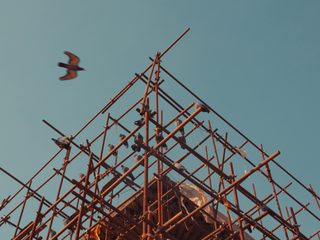This is a brilliant series, and very much needed.
The events in the Incubator's Building Laterally series are free and open to the public. These conversations are an invitation to imagine the work of building project governance and community engagement as intimately intertwined with different political horizons. Join us!

What can efforts to increase the sustainability of digital infrastructure learn from unionizing, whistleblowing, and other organizing among tech workers?

As open source digital public infrastructure embraces anti-racist, anti-ableist, anti-colonial, and gender-affirming values and commitments, how can project leads critically assess this work and the tools relied on to do it?

How do efforts to sustain and maintain digital infrastructure cover for imperial domination, neocolonialism, and other forms of extractivism?

What does it look like to build digital infrastructure?
The Incubator also hosts synchronous programming directed at cohort interests and needs. We don't announce these in advance or record them but we do share out resources from them.

What is a “theory of change” specific to your project and how to go about articulating one?

How do we imagine the future of work in open data, open software, and public interest technology?